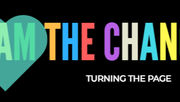I pray this winter to be gentle and kind--a season of rest from the wheel of the mind.
- Dec 4, 2020
- 6 min read
Continuing with a new series titled; NUTRITION -
Hello all my followers,
Oh winter, the season of cold temperatures and snow-covered ground for many areas.

As a girl raised in Florida and moving to Mexico, real cold weather is all new to me.
This season of winter is a beautiful one, but admittedly a bit colder. It’s a fun season to enjoy walking in the snow with family and then curl up in front of a wood fire or hot coco late at night to stay warm.

"Winter forms our character and brings out our best." —Tom Allen
As you enjoy winter, revel in the magic, the drama and the beauty of snow fall and crystal-clear icicles gathered on your window panes, doorsteps, rooftops, trees, and fields as far as your eyes can see.
Don’t forget those fuzzy socks and of course, the comfy blankie. Doesn’t hurt if you’re also bundled up with a good book while your favorite winter jam is playing in the background.

“We cannot stop the winter or the summer from coming. We cannot stop the spring or the fall or make them other than they are. They are gifts from the universe that we cannot refuse. But we can choose what we will contribute to life when each arrives.” – Gary Zukhav

Continuing with a new series titled; NUTRITION. All right, did you know that eating a healthy diet can help you to live longer.
The science is clear: Eating the right foods can lead to a longer, healthier life. But some people find it harder to eat right as they get older for many reasons. Maybe they don’t have much of an appetite. Maybe they have trouble cooking or eating. Maybe they don’t know what’s healthy.
Or maybe they do and just don’t like the idea of kale.

“You know what? You can live a long, healthy life and never eat a piece of kale,” says Cheryl Rock, PhD, a professor of family medicine and public health at the University of California, San Diego School of Medicine. She’s all for finding healthy food that you like and building on that.
“If you’re eating foods you like, then you’re more likely to stick with it. You won’t force it down for 4 days and then go out for a double cheeseburger,” Rock says.
But it’s more than just finding the right foods. Michele Bellantoni, of the Johns Hopkins University School of Medicine, points out that you need to eat them in the right amounts, too.
UNLIMITED POWER
It's your unlimited power to care and to love that can make the biggest difference in the quality of life. #makingadifference#inspiration#motivational
“It looks like the optimal calories [for most older adults] will be 1,800 [a day],” she says. “And for successful aging, we think about the entire body, rather than just specific organs.”
Many foods are especially good for certain parts of your body. Bellantoni suggests splitting those 1,800 calories up into proteins for your muscles, calcium for your bones, and a basic heart-healthy diet. That approach can do a lot of things for you.
It Can Help Your Heart; a basic heart-healthy diet can help you control your weight. That’s important because more than a third of people 65 and older are obese. That can lead to diabetes, some cancers, and heart disease.

Nutrition is important for lots of reasons. So, what do we do with that information? What exactly should we be eating?
The healthiest diets with the most scientific evidence behind them have a few key things in common. To get started with a healthier diet today, try some of these changes: ORGANIC
Eat lots of fruits and vegetables
Swap out refined grain products for whole grains
Decrease your red and processed meat intake in favor of fish, lean poultry, and plant-based protein
Eat a moderate amount of healthy fat
Limit processed foods that contain lots of added sugar, sodium, and unhealthy fats
Eat a wide variety of different foods to get all the nutrients you need
Watch your portion sizes
Drink plenty of fluids, especially water
Include physical activity, quality sleep, and stress management techniques for an overall healthy lifestyle
Salmon and other fish, like trout and herring, are high in omega-3 fatty acids, which help lower your chances of heart disease and may help with high blood pressure, among other things.
Aim for two servings a week.

The fiber in veggies and whole grains also can help make you less likely to have cardiovascular disease. And it aids with digestion and may help keep you regular, which can be a problem for some older adults. No single food is going to help your heart. You need a complete, healthy diet.
“If you’re eating a lot of fish but, in addition to that, you’re living on ice cream and candy and stuff like that,” Rock says, “it’s not going to save you.”
A loss of memory, a big concern among some older adults, has been linked to a lack of vitamin B12, among other things. Alzheimer’s disease has been linked to chronic inflammation, which can be caused by foods like white bread, French fries, red meat, sugary beverages, and margarine.

Scientists are still studying the link between some foods and brain health.
“I would not want to identify a specific food that prevents memory loss. I probably would tell someone that if you want to be functioning well, then some fruits and antioxidants will do better for you than another slice of cake," says Adam Drewnowski, PhD, director of the Nutritional Sciences Program at the University of Washington.
Antioxidants, found in many vegetables and in fruits like blueberries, help ease inflammation.
They also help you get rid of some damaging things called free radicals that are made when your body changes food into energy.

Again, it’s important to realize that good brain health may be as much about what you don’t eat as what you do. “Your brain runs on blood flow, just like your heart,” says Rock. “So, if you’re eating a lot of saturated fats, it makes it less likely that you’ll have those nice clean arteries to supply that brain tissue with blood.”
Try to get tomatoes, blueberries, green leafy veggies like spinach and kale, turmeric, and nuts (especially walnuts) into your diet. And those omega-3 fatty acids, found in salmon and other oily fish, are inflammation fighters, too.
They’re always breaking down and getting built back up again -- that’s the way your body works.

As you get older, you need more protein for that rebuilding process.
“If you don’t eat enough protein, you’ll be breaking down more than you’re rebuilding,” Rock says.
Low-fat or fat-free goat yogurt, goat cheese, lean grass-fed meats, wild fish, and organic beans can help with that. Eggs are an excellent source of protein, too, and they don’t have the saturated fats that meat have. Don’t worry about the cholesterol in your eggs, Rock says. Your body doesn’t absorb it well.
Older adults need calcium because it boosts healthy bone growth. “The risk for low vitamin D in older adults, that’s kind of a challenge because it’s not like there’s lots of foods that are high in vitamin D,” says Stephen Anton, PhD, from the department of aging and geriatric research at the University of Florida.
Calcium and vitamin D are in fortified foods, fish like salmon. Getting enough vitamin D is important, too, because that helps your body use calcium. But that’s not always easy.

“We cannot stop the winter or the summer from coming. We cannot stop the spring or the fall or make them other than they are. They are gifts from the universe that we cannot refuse. But we can choose what we will contribute to life when each arrives.” – Gary Zukhav
Diet and brain health: You are what you eat?
A key element in brain health is nutrition, say researchers who believe the number one factor that you have control over in terms of your mental health is at the end of your fork. Susan Spencer talks with Dr. Drew Ramsey, a psychiatrist who in his book "Eat Complete" prescribes a healthier diet in order to combat depression; Samantha Elkrief, a trained chef and wellness coach; and neuroscientist Lisa Mosconi (author of "Brain Food"), for whom brain scans reveal the differences in brain structure between those who eat a Mediterranean diet and those who consume standard Western fare.

Until next time, winter is a time to slow down. To grab hold of that wheel that spins your days too quickly and give it a firm tug. To let your thoughts, catch up with your body. To pin down that idea that’s been circling your mind for months. To remember that life isn’t an emergency, stop and take a look at what you are doing.




















Comments